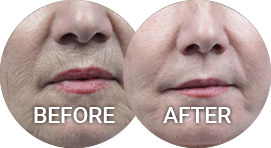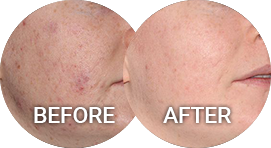Allergies and Athletic Performance
Conveniently located to serve the areas of Phoenix, AZ

Allergies and athletic performance is a complex relationship that can have significant effects on an individual’s ability to participate fully in physical activities. Allergic reactions can impact respiratory function, endurance levels, and overall athletic capability. It is essential for athletes, as well as fitness enthusiasts, to understand how allergies may interfere with their training regimen and strength during competition.
Understanding allergies involves recognizing that they are reactions by our immune system due to exposure to certain substances, known as allergens. Common allergens include pollen, dust mites, pet dander, mold, and food items. (1) Such reactions often lead to symptoms such as sneezing, runny nose, difficulty breathing, and more severe cases like exercise-induced asthma. Effective allergy management can enhance respiratory function, reduce inflammation, and improve physical endurance, allowing athletes to enjoy their activities to the fullest.
Please feel free to reach out to Dr. Kevin Chan at Pineapple Health at (480) 961-2366 or fill out our online form to learn more about how we can help you optimize your athletic performance despite allergies.
Take Our Allergy Assessment Questionnaire
Contents
About Allergies & Athletic Performance
Individuals engaged in athletic pursuits often seek ways to optimize their performance, but when allergies are a factor, they can pose challenges to achieving their goals. Allergic responses can lead to discomfort, decreased lung function, and general fatigue, all of which hinder physical abilities and enjoyment during sports and exercise. Some reactions may even be more serious. Therefore, it becomes essential for athletes and fitness enthusiasts to understand how to manage allergies effectively for improved performance.
Some statistics show that over 40% of adults self-reported allergies, with many athletes among them. (2) As education around allergy management has expanded, more effective strategies have become available to address these challenges.
Exercise and the practice of sports are associated with three principal disorders: (3)
- Exercise-Induced Asthma (EIA): Exercise-induced asthma is a form of asthma that occurs when physical activity leads to breathing difficulties, termed exercise-induced bronchoconstriction. Symptoms can include wheezing, shortness of breath, and chest tightness, which can limit exercise tolerance.
- Exercise-Induced Anaphylaxis (EIAn): Exercise-induced anaphylaxis is a rare but serious allergic reaction triggered by physical activity. It can happen to anyone, regardless of age or fitness level, and can be frightening for anyone who experiences it. Anaphylactic shock is a severe form of an allergic reaction that necessitates urgent emergency treatment.
- Exercise-Induced Urticaria (EIU): Exercise-induced urticaria often causes hives, which are itchy welts on the skin, and can vary in intensity from mild to severe. When individuals engage in strenuous physical activity, they may experience symptoms due to the body’s release of histamine, a chemical involved in allergic reactions.
Seasonal Allergies and Sports
The Arizona allergy season puts those involved in sports at greater risk of allergic reactions. Athletes are more affected by the environment because they often train and compete outside for long periods. When they exercise, they breathe in a lot of air, which increases their exposure to different weather conditions and outdoor pollutants. (4) This can drastically impact performance, causing discomfort and hindering training sessions. Athletes may experience symptoms like nasal congestion, sneezing, and even exercise-induced asthma due to environmental triggers such as: (4)
- Mugwort
- Ragweed
- Sagebrush
- Bermuda Grass
- Tree Pollen
Are allergies affecting your workouts? Get in touch with us!
Hay Fever and Outdoor Activities
Allergic rhinitis, commonly known as hay fever can produce symptoms such as nasal congestion, sneezing, and eye irritation that may hinder one’s ability to fully enjoy activities like hiking, running, or attending outdoor events. It may also contribute to decreased cognitive function and poorer work productivity. (5) People want effective solutions to manage hay fever, especially those who desire to participate in outdoor events, sports like running or hiking, and nature walks.
Hay fever is proven to affect athletic performance. (4) The goals of individuals seeking to address their hay fever often revolve around reducing allergy symptoms to improve overall well-being and enjoyment of their favorite outdoor activities. Additionally, understanding the types of treatments available can empower individuals to make informed choices about managing their allergies effectively.
Consultation

A personal consultation at Pineapple Health provides a crucial opportunity to gain insights and direction on allergy testing and therapy and how we can help you with your athletic performance. During this visit, we will review your medical history, assess the severity of your allergy symptoms, and ask questions about when and how often these symptoms occur. Our doctors’ expertise facilitates informed discussions, allowing you to weigh the benefits of each approach while addressing any queries or concerns you may have.
To take steps toward understanding and addressing your allergies, please contact our Phoenix office at (480) 961-2366 to set up your consultation.
What Are Immunoglobulin E Antibodies?
Immunoglobulin E antibodies (IgE) are proteins produced by the immune system to identify and help eliminate foreign particles such as bacteria, viruses, and toxins. They play a crucial role in the body’s defenses. However, when an allergen enters the body—such as pollen, dust mites, or certain foods—our immune system can overreact. This reaction occurs when IgE antibodies attach to the allergen, leading to the formation of antigen-antibody complexes. When these complexes form, they trigger the release of histamine, causing symptoms of allergies like sneezing, itching, or even more severe conditions like anaphylaxis. (6)
Allergy Testing at Pineapple Health
Pineapple Health offers two types of allergy testing methods:
Scratch Testing
A scratch test involves placing small amounts of various allergens on the skin’s surface and then lightly scratching or pricking the skin. We use special test combs to administer different allergens just under the skin. This allows for observation of any immediate allergic reactions, typically measured by redness, swelling, or itchiness, caused by IgE-mediated responses. Allergy scratch tests are primarily used to identify environmental allergens—such as pollen, mold, pet dander, and dust mites—as well as food allergies.
Blood Testing
An allergy blood test analyzes blood samples for IgE antibodies and is most frequently used to detect environmental and dietary allergens. Our specialists administer a “finger poke” test with the use of a lancet. After the blood drops are produced, they are transferred to a blood card and sent for analysis.
What is Allergy Therapy?
Allergy therapy has been proven beneficial for thousands of patients, substantially reducing the frequency and severity of allergic reactions. It also reduces the reliance on antihistamines, nasal sprays, and corticosteroids. Increased awareness of allergy prevention strategies can significantly improve patients’ overall quality of life.
Allergy Shots
Allergy injections are part of a treatment strategy known as allergy immunotherapy. This treatment works to desensitize the immune response to allergens through gradual exposure. Over time, this exposure helps the body build up a tolerance to the triggers causing allergic reactions in individuals. The goal is to lessen the severity of allergies and may even eliminate them completely.
Sublingual Immunotherapy (SLIT)
SLIT involves spraying small doses of allergens under the tongue. Over time, this method helps the immune system tolerate the allergens better and reduces allergic reactions. One main reason why people choose sublingual immunotherapy is that it offers a convenient way to treat allergies at home without the need for regular injections.
Cost of Allergy Testing in Phoenix
The cost of allergy testing can vary significantly depending on the type of tests performed. Pineapple Health strives to provide clear estimates during consultations to help you understand your financial commitments effectively.
To ensure your journey toward a healthier life begins, reach out to our friendly office staff at Pineapple Health by calling (480) 961-2366 or by filling out this form.
FAQ
Can allergies really affect my athletic performance?
Yes, allergies can impair respiration and energy levels, leading to reduced athletic performance. Managing them effectively is crucial for optimal functionality.
Can outdoor workouts trigger my allergies?
Yes, outdoor activities during high pollen seasons can provoke allergic reactions such as sneezing and nasal congestion in susceptible individuals.
Can I still exercise if I have allergies?
Absolutely! With proper management strategies tailored to your specific allergens, you can continue exercising effectively.
What if I have multiple allergies?
Results may show positivity to different allergens. Accordingly, we can help you strategize an avoidance plan and may consider options for immunotherapy tailored to your allergy profile. Can allergy testing prevent future reactions? Allergy testing itself does not prevent allergic reactions, but it enables informed decisions for avoidance and management strategies.
References
- Institute for Quality and Efficiency in Health Care. Allergies: Overview. Nih.gov. Published July 13, 2017. https://www.ncbi.nlm.nih.gov/books/NBK447112/
- Seité S, Kuo AMS, Taieb C, Strugar TL, Lio P. Self-Reported Prevalence of Allergies in the USA and Impact on Skin—An Epidemiological Study on a Representative Sample of American Adults. International Journal of Environmental Research and Public Health. 2020;17(10):3360. doi:https://doi.org/10.3390/ijerph17103360
- Del Giacco SR, Manconi PE, Del Giacco GS. Allergy and sports. Allergy. 2001;56(3):215-223. doi:https://doi.org/10.1034/j.1398-9995.2001.056003215.x
- Komarow HD, Postolache TT. Seasonal allergy and seasonal decrements in athletic performance. Clinics in Sports Medicine. 2005;24(2):e35-50, xiii. doi:https://doi.org/10.1016/j.csm.2004.12.006
- Park J, Park JH, Park J, Choi J, Kim TH. Association between Allergic Rhinitis and Regular Physical Activity in Adults: A Nationwide Cross-Sectional Study. International Journal of Environmental Research and Public Health. 2020;17(16):5662. doi:https://doi.org/10.3390/ijerph17165662
- A C, Travers P, Walport M, Shlomchik MJ. The production of IgE. Nih.gov. Published 2010. https://www.ncbi.nlm.nih.gov/books/NBK27117/



